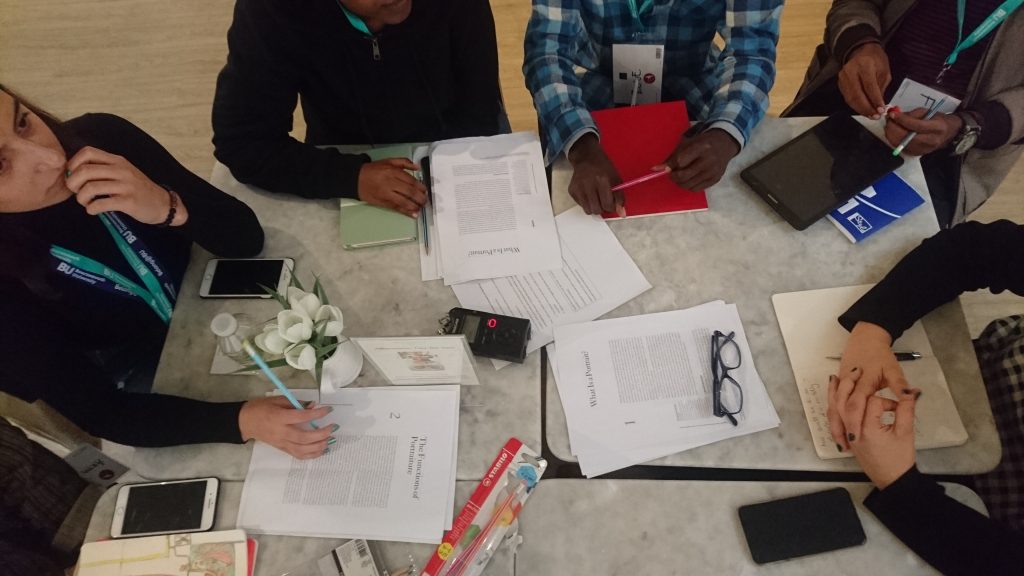There exist many types of interviews in qualitative research. They differ in the degree to which they are open, structured or guided by pre-determined themes and aims; how many people they involve on the side, and what research objectives the data harvested are supposed to serve. As a rule of thumb regarding benefits versus limitations: pre-prepared questionnaires can assure a comprehensive or selective coverage of relevant research themes and objectives, but they can also foreclose new insights and findings which the researcher didn’t foresee when designing these questions. In contrast, the more open an interview is, the more there are chances of generating learning in ways which the researcher did not envisage in advance. However, unless supported by a more or less flexible theme-guide, such interview design can also lead astray from a project’s intended focus.
As part of PAR, we introduced students collectively, as a group, to broadly theme-guided, unstructured and open interview techniques with time witnesses and contemporary curators of the spaces and places studied. The students were encouraged to identify relevant themes and corresponding questions on the basis of preceding, collective archival research and engagement with the selected place’s history. For example, at Dodona Theatre we invited three actors as time witnesses, and the students asked questions that had been jointly drafted. This exercise was driven by a pre-defined pedagogical objective of the students to familiarise themselves, sensually and across time, with the ways in which the same space was inhabited, used and experienced, by a preceding generation within the context of that past.
Interviews cannot be conducted without informed consent of those interviewed. Our students had previously participated in an ethics workshop. In accordance with the research ethics guidelines of the University of Prishtina, our interviewees were fully briefed on the purposes of this educational project, their participation was entirely voluntary, and they knew that they had the right to withdraw, including not answering questions they did not wish to answer, at any time.






